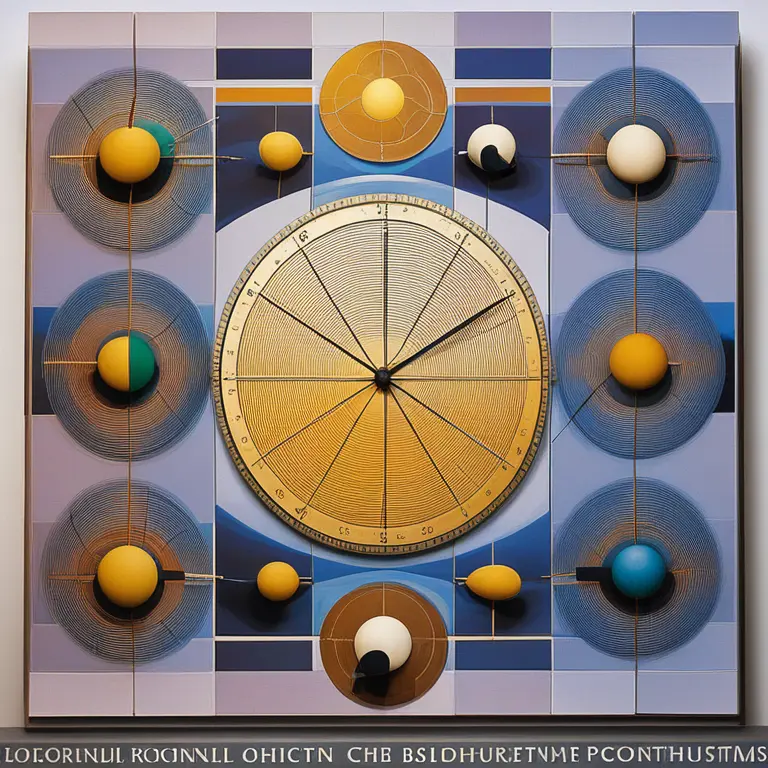
The Reality of Biorhythms: Fact or Fiction?
Examine the validity of biorhythms and whether they hold any scientific substance in contemporary understanding.
article by Adrian Wallace
The Origin of Biorhythms
Biological rhythms, or biorhythms, are purported cycles in physiological, emotional, and intellectual well-being said to affect human performance. The concept of biorhythms dates back to the 19th century, with the most prominent model emerging in the 20th century. Proponents suggest that three primary cycles - physical, emotional, and intellectual - operate over distinct periods of days, influencing our abilities and moods. Despite their enduring popularity, biorhythms have faced scrutiny and scientific skepticism because predictions based on these models lack empirical support under rigorous testing conditions.

Scientific Scrutiny of Biorhythms
The scientific community has long been skeptical of biorhythms, often classifying them alongside pseudoscience. Studies conducted to validate the theory have frequently failed to show consistent or replicable results. Biorhythms are seen by many as an oversimplification of the complex nature of human physiology and behavior, which are influenced by a myriad of factors beyond cyclic patterns. Additionally, with advancements in neuroscience and psychology, there is an increased understanding of how myriad variables contribute to physical and mental states.

The Appeal of Biorhythms
Despite scientific skepticism, biorhythms continue to captivate a portion of the public. They offer straightforward answers to the complexities of human existence and behavior. The appeal lies in the personalized insights and the semblance of control they promise over one's health, decision-making, and relationships. This allure is similar to that of astrology, where individualized readings provide a sense of understanding and predictability in an ostensibly chaotic world.

Biorhythms in the Age of Personal Data
Today's digital era offers extensive personal data, renewing interest in customized health and lifestyle recommendations. While there's no concrete evidence that biorhythms as traditionally described are real, there is growing recognition of the body's natural rhythms, such as circadian rhythms. Technological advancements, like wearable fitness trackers, leverage biological data to recommend optimal times for sleep, exercise, and even eating, offering a scientifically grounded nod to the concept of personal rhythms affecting well-being.

Psychological and Placebo Effects
The power of belief in the efficacy of biorhythms should not be underestimated. The placebo effect is well-documented in the medical field, suggesting that if individuals believe that tracking and adhering to their biorhythms can improve their lives, they may perceive benefits. Psychology also indicates that the ritual of monitoring one's cycles can lead to increased self-awareness and healthier behavior changes, regardless of the scientific veracity of biorhythms themselves.
The Future of Biorhythm Theory
In recent years, there has been a rise in holistic and alternative health practices, which could provide fertile ground for the biorhythm theory to evolve. If future research finds innovative ways to incorporate verifiable physiological markers into the biorhythm framework, it could bridge the gap between the theory and scientifically acknowledged patterns. Until such evidence emerges, biorhythms remain an intriguing concept that warrants cautious interest rather than full endorsement from the scientific community.
Published: 1/25/2024
Modified: 1/25/2024
More predictions
Come back here soon to learn more about yourself and your future


The Basis of Biorhythms: An Insight into Biological Cycles
Delve into the concept of biorhythms, the belief in rhythmic biological processes that purportedly influence human physiology and behavior.


The Basis of Biorhythms: Biological Cycles Explored
Delve into the foundations of biorhythms and discover how these natural cycles influence our daily lives and well-being.


The Rhythms Within: Biorhythm Horoscope Insights
Tap into the cosmic wisdom of biorhythms to understand your emotional, physical, and intellectual cycles for enhanced well-being and foresight.